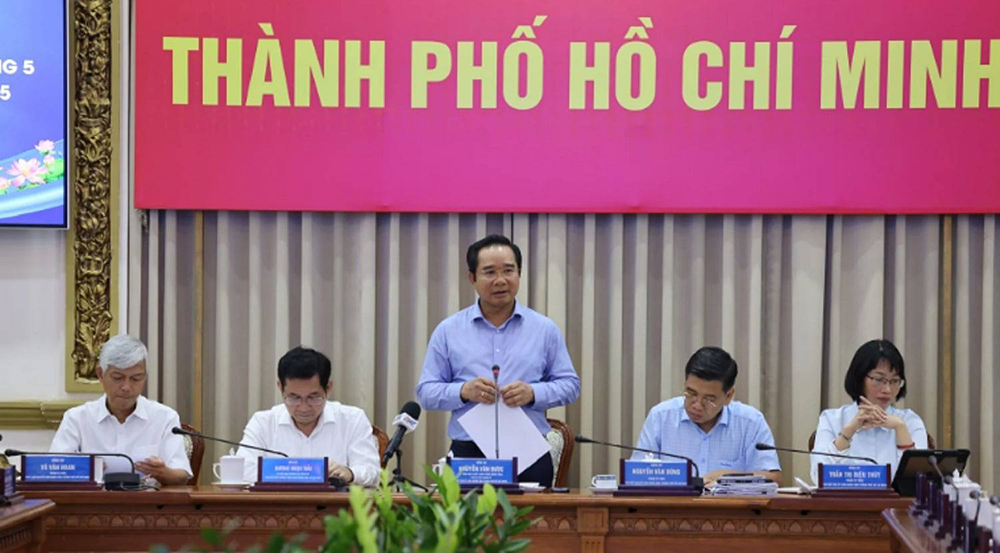"By June, we must achieve 30% capital disbursement so I can show my face at the Government meeting. We can’t keep presenting empty promises to the Prime Minister," said HCM City People's Committee Chairman Nguyen Van Duoc at the May socio-economic briefing on the morning of June 3.

According to data from the city's Statistics Sub-department, as of May 28, the city had disbursed only 8.71 trillion VND (approximately $342 million) out of the allocated 85.52 trillion VND (around $3.36 billion), reaching a mere 10.2% disbursement rate. This is lower than the national average of 15% and far behind several other provinces and cities that have reached 40% to 50%.
Chairman Nguyen Van Duoc admitted that Ho Chi Minh City is repeatedly criticized at government meetings.
"The Prime Minister said our work must be fast, but Ho Chi Minh City keeps dragging its feet," Duoc remarked, emphasizing the city's immense investment needs. If executed decisively, he noted, even the allocated budget wouldn’t be sufficient. Yet, every year, the city ends up with a surplus.
This, he said, is a persistent bottleneck that has yet to be resolved, keeping the city consistently at the bottom of the rankings.
The Chairman has set a target for all departments to achieve at least 30% disbursement by the end of June, equivalent to 25.66 trillion VND (approximately $1.01 billion). To meet this goal, the city plans to implement multiple measures, including performance-based management. Leaders of departments with poor disbursement results may be replaced.
He also urged agencies not to be excessively perfectionist or stringent in project approvals, as such rigidity often delays implementation. He stressed that capital allocation must be revisited and funds redirected to projects ready for execution.
"I’m not asking anyone to work triple shifts or weekends, just that staff put their full effort into the standard eight-hour workday to accelerate progress," Duoc stated.
Regarding the city’s economic performance in the first five months of the year, the Chairman reported some positive indicators and reasons for optimism.
Macroeconomic indicators reveal that industry, especially trade, services, and tourism, remain key drivers of growth. Although investment attraction has yet to meet expectations, it shows signs of recovery.
"While some aspects still fall short, these are encouraging signs that the system is gradually rebooting. Many major investors continue to place their trust in the city’s investment environment," Nguyen Van Duoc shared.
He also disclosed that city leaders have recently engaged with many investors. Notably, one investor decided to commit $2 billion to a tech project after just one hour of discussion.
"This result shows the city’s investment climate is warming, reflecting greater adaptability, a shift in mindset, and a more positive attitude from officials toward investors," the Chairman added.
Regarding administrative restructuring, he confirmed that the groundwork is in place to abolish district-level government units from July 1 and proceed with provincial-level administrative mergers from August 15.
However, the Chairman acknowledged lingering challenges. Though six-month growth figures are relatively strong, achieving double-digit growth as previously pledged remains a difficult task. He urged the entire system to strive with maximum determination to exceed the 8.5% growth target set by the central government and work toward double-digit growth.
Quoc Hai